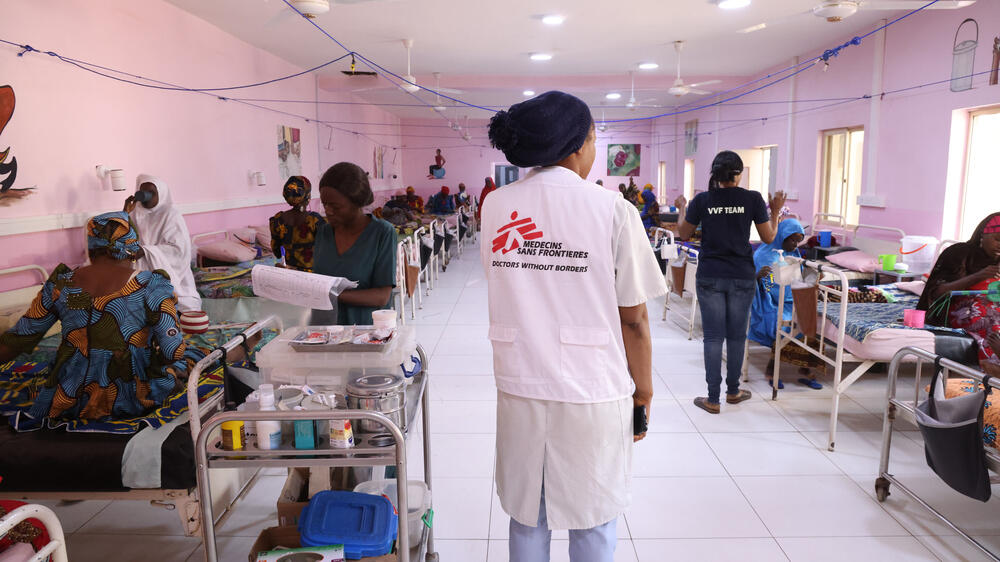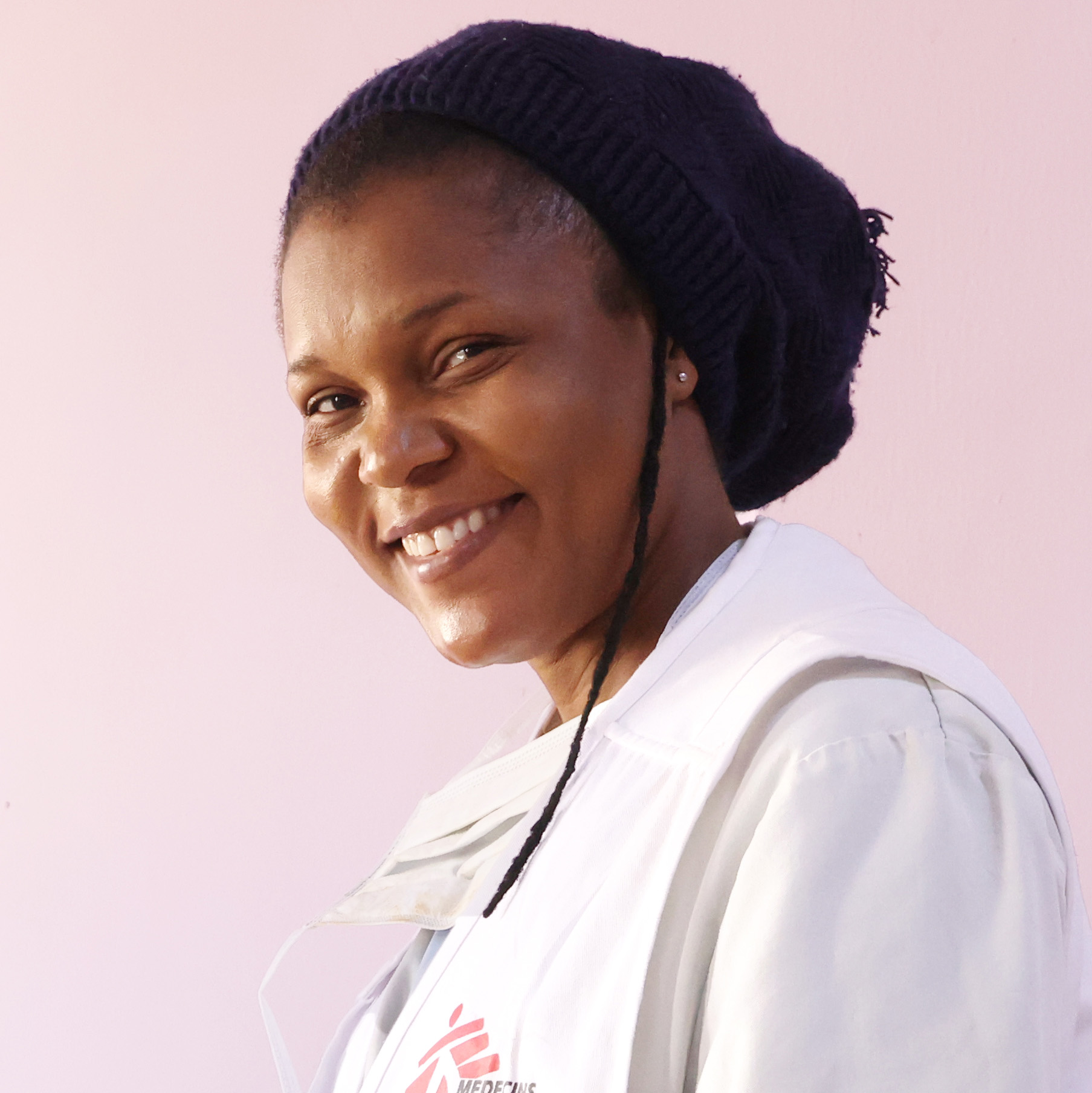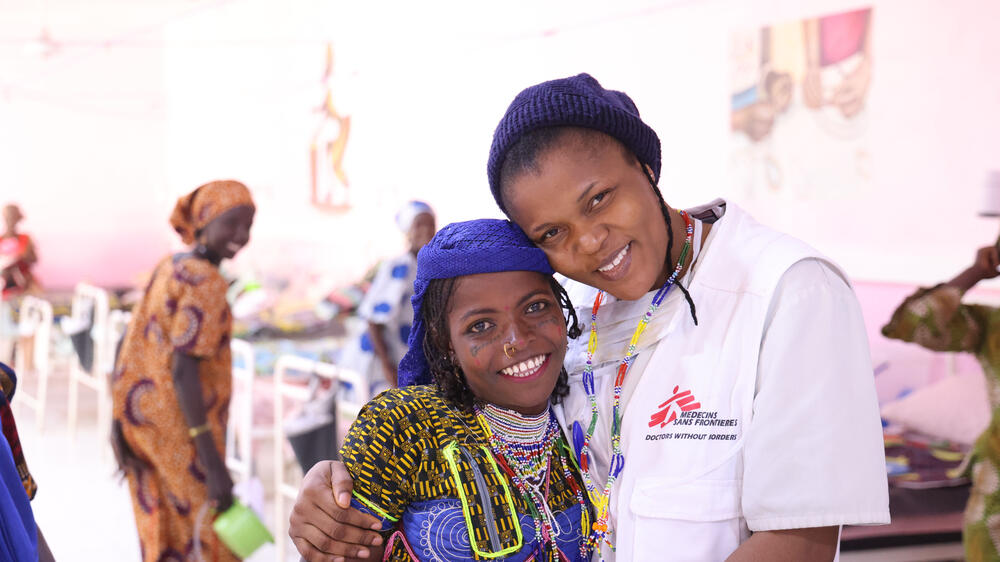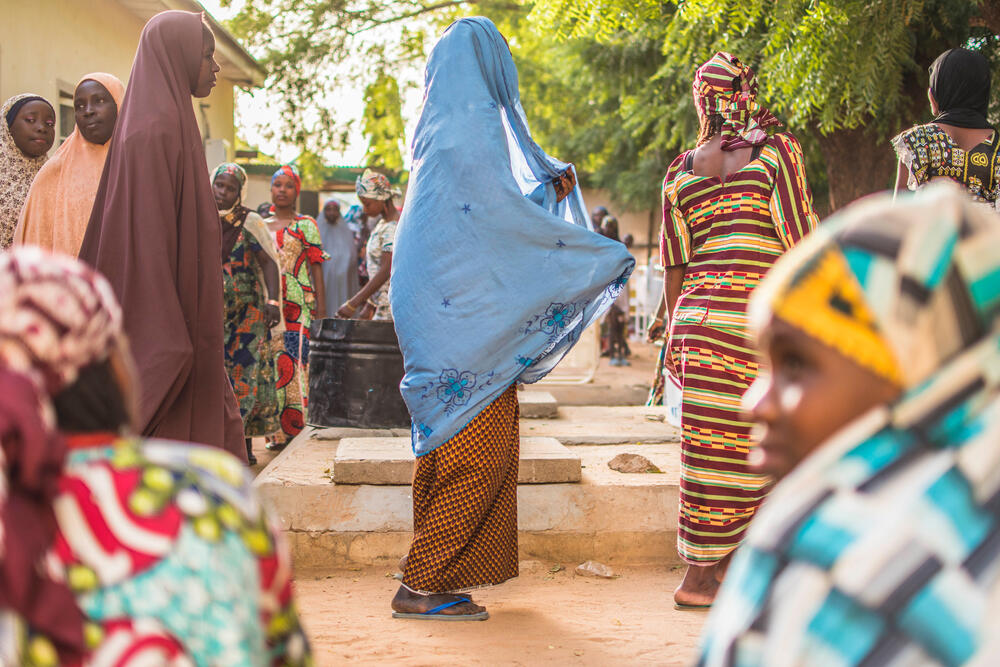Nigeria: “Women put themselves and their trauma in our hands”
Nigeria has one of the highest maternal mortality rates in the world, and many women can face life-changing childbirth complications without access to medical care.
At a Médecins Sans Frontières / Doctors Without Borders (MSF) project in the north of the country, Unity Enuebuke leads a nursing team working to give holistic and hopeful care to women suffering from the devastating effects of obstetric fistula.
Even though I have been here for 10 years, my work still takes me on a roller coaster of emotions. Today, I'll tell you about my vast wealth of experience and the wonderful people I meet every day.
Joy and pain appear close together in my work.
I work here in Jahun, a town in northern Nigeria, at a large MSF project which is part of the public general hospital.
We operate a maternity ward, an operating theatre, a blood bank and a ward that treats women who have a vaginal fistula.
On this ward, the emotional state is particularly intense and the patients there are especially close to my heart.
Physical and psychological trauma
Fistulas are unnatural connections between organs, in this case between the vagina and bladder or between the vagina and bowel.
They occur, for example, when the birth of a child is obstructed and a caesarean section is not performed in time.
In an ‘obstetrical arrest’, a pregnant woman lies in labour for several days. Since the baby's head is constantly pressing on the tissue in her abdomen, it is no longer supplied with blood properly and the tissue dies. The resulting internal injuries mean that a woman can no longer control her bladder or bowel.
But that's not all. In most cases, the baby dies during an obstetric arrest.
“Women put themselves in our hands with all these traumas and emotions”
This means our patients live with both traumatic physical and psychological consequences of the fistula.
They constantly lose urine and stool and are often socially isolated and stigmatised because of the resulting odour.
Often, their husbands also divorce them. And on top of all this, there is the great grief for their lost child.
Life-saving maternity care, thanks to your support
The generosity of people like you means expert MSF medical teams can deliver life-saving maternity care to women across the world.
Women put themselves in our hands with all these traumas and emotions. Many are depressed, have anxiety and feel great shame.
For them, our clinic is a safe space and a place of hope: hope for healing and for social reintegration. They often see us staff members as rescuers from a difficult situation and we hope with them that we can help both medically and psychologically.
Holistic care
When I walk through our hospital's fistula ward, I see how far we've come since MSF started working here in 2008.
We are constantly evolving and learning from the experience of the around 5,700 fistula patients we have admitted and treated here so far.
From a capacity of just four beds and only four surgeries per month, we have grown to 55 beds and 36 surgeries per month. And it’s not only the numbers that have changed. We also evolved from only medical and surgical treatments to skills training and psychosocial support.
Since there is still a limited number of beds on the ward and treatments take a relatively long time, I get to know the patients well during their stay. I enjoy going to the ward, talking to the women and accompanying them on their journey.
Our treatment approach is very holistic and patient-centred, which means that we prepare women psychologically and physically for their surgeries over a longer period of time and accompany them in the healing process.
My colleagues offer health consultations and explain to the women what is important in advance so that the treatment can work, that they must follow certain hygiene measures and eat sufficiently healthy food so that their bodies can regain their strength.
Following the surgeries, the women then receive physiotherapy to increase the blood flow to their pelvic region. This can improve the outcome of surgery in terms of successful closure of the fistula as well as reduced risk of persistent urinary incontinence.
The parallel psychosocial counselling, support groups and community activities also give patients mental strength and helps them form strong long-term bonds with each other.
I am always pleased to see how the women become a close-knit community over time. They all have had similar difficult experiences, they understand each other, they can support each other, advise each other, talk to each other without stigma or taboo.
Celebrations and challenges
When a group of women finishes treatment and they can go back to their communities, we always host a small celebration. We turn up the music, cook delicious food and celebrate together what we have achieved.
"Seeing how many of our patients get better, gain hope and eventually return to their social lives touches me deeply”
Then, when the women leave our project, they also take new skills with them to help them return to their communities. During their treatment at our clinic, they have the opportunity to learn a craft: such as making pasta or weaving baskets and bowls. These skills allow them to get some financial freedom in their communities and can help reintegrate them into the social networks they lost because of their fistulas.
Each of these women becomes an ambassador: if another woman around them is affected by a fistula, they know where to find help and get treatment, but also how much emotional support the affected person needs.
We stay in contact with our former patients long after their treatment with us. If they become pregnant again, they should come to us for preventive care and, if possible, give birth by caesarean section so that a fistula does not occur again.
Whenever we can treat a patient and she goes home healed, we are happy - that is a win for us as a team.
But unfortunately, it also happens that patients cannot be cured. When we have to send them home still incontinent, it makes us sad because their social life is still disturbed. They are not welcomed joyfully by their friends and often their husbands may divorce them.
It is all very challenging. These women suffer a lot from the social consequences that fistula brings.
Where my heart is
I feel the pain of these women so much. And I'm trying to do my part to make sure the communities these women come from are supporting them instead of rejecting them."
Through various campaigns, we try to raise awareness among the communities. To draw attention to the fact that women who experience complications during childbirth should be taken to the hospital as soon as possible. They do not have to suffer at home and take a risk for themselves and their child.
This clinic is where my heart is.
I've been here for so many years and I've grown and developed here. I've been able to take on new positions because of the experience I've gained here, and now I manage the entire nursing staff at the project.
So many people work here day and night to ensure that the patients receive high-quality care. Even though it is sometimes not easy to accompany these women on their difficult path, to give them support, to strengthen them, this work also always gives me strength.
Seeing how many of our patients get better, gain hope and eventually return to their social lives touches me deeply.
And if I could wish for one thing, it would be a fistula-free world.
MSF and maternal health
Many women across the world give birth without medical assistance.
This massively increases the risk of complications or death. Ninety-four percent of these deaths are in low- and middle-income countries. The majority are preventable with appropriate care.
Our healthcare teams work together with pregnant women to provide delivery services, emergency obstetric care and post-delivery consultations.



